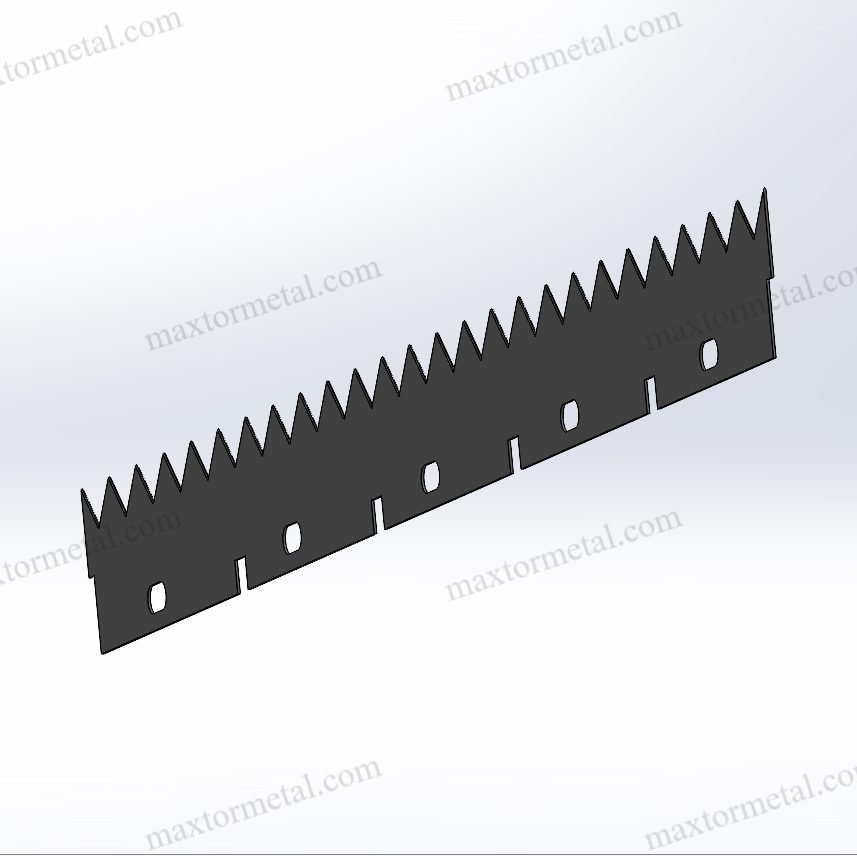
Choosing the right tool for industrial perforating is important. It depends on what each job needs. Rotary perforating knife systems are very fast. They are good for jobs that never stop. Static perforating blades make cleaner cuts. They are best when how it looks is important. You should think about performance, efficiency, cost, and maintenance. Also, think about which tool fits your job. Rotary knives are great for packaging or textiles with lots of work. Static blades are better for jobs needing straight, neat lines.
Poin-poin Utama
- Rotary perforating knives spin very fast. They are best for quick, nonstop cutting. They work well on thin things like paper, film, and textiles.
- Static perforating blades do not move. They make straight and neat cuts. They are good for jobs that need exact holes or lines.
- Rotary knives last longer than static blades. They do not need fixing as often. This saves time in busy factories. They cost more at first.
- Static blades cost less to buy. They are easy to change. They are good for small jobs or when people cut by hand.
- Picking the right tool depends on the material. It also depends on how fast you need to work. The quality of the cuts matters too.
Pisau perforasi berputar
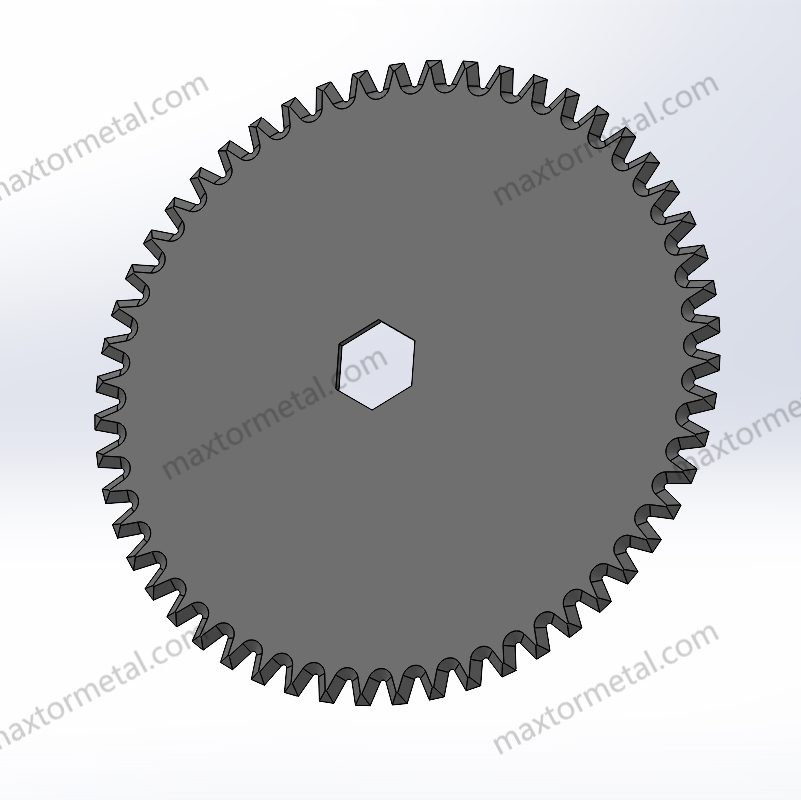
Definisi
A Pisau perforasi berputar is a special tool used in factories. It is made for cutting and making holes in things that move fast. The blade is round and spins as the material moves. Rotary blades make small cuts or holes in a row. This helps people tear or separate things like packaging, labels, and tickets. The design lets the knife cut very neatly and the same way every time, even when working quickly.
Maxtor Metal sells many kinds of rotary perforating knives. They have round blades and knives with teeth or special edges. These blades are made from stainless steel, high-speed steel, alloy tool steel, or carbide-tipped metal. Each type of metal works best for different jobs. Stainless steel does not rust and is safe for food. High-speed steel and carbide-tipped blades stay sharp and last longer for tough jobs.
Industrial uses
Rotary perforating knives are important in many factories. Workers use them to cut and make holes in paper, plastic, film, and textiles. The blades are put on spinning cylinders. These cylinders turn at the same speed as the material moves. This makes sure every cut and hole is in the right place. Workers can change how high the blade is and how far apart the cuts are. This helps them get the right size and pattern for each job.
Rotary perforating knives are great for fast, nonstop work. They help factories work faster by skipping extra cutting steps. The blades stay sharp for a long time, so workers do not have to stop and change them often. In packaging, rotary blades make it easy to open packages but keep them strong. For paper, these knives make neat holes that look good and work well. Textile makers use rotary blades to make smooth edges and stop fabric from coming apart, which saves material.
Maxtor Metal can make special rotary perforating knives for each customer. People can ask for blades made just for their needs. The company helps pick the best metal and blade shape for each job. They use advanced machines and lasers to make sure every blade is perfect. They check quality with ISO rules, heat treatment, and tests for strength. Customers get updates during the process, so they know the blades are made well.
If a business needs a special cutting tool, Maxtor Metal can help design it. Readers can learn more about custom blades Di Sini. The company knows a lot about rotary blades and is a trusted partner for factories.
Tip: Rotary perforating knives work faster, make cleaner holes, and last longer when cutting paper, plastic, film, and textiles.
If you want help or need a price for rotary perforating knives, talk to a sales engineer using this link.
Static perforating blades

Definisi
Static perforating blades are special tools for cutting and making holes. These blades do not spin. They stay in one place while the material moves past. The blade makes small holes or slits in the material. This creates lines that are easy to tear or pull apart. Static blades are very good at making straight, neat cuts. They help factories get the same results every time. Factories use these blades when they need cuts that are always the same.
Static perforating blades are not the same as rotary knives. The table below shows how they are different:
| Aspek | Static Perforating Blades | Rotary Knives (Rotary Cross-Cutting Knives) |
|---|---|---|
| Desain | Static blades that punch precise holes in tissue paper | Rotating blades designed to make rapid, consistent cuts |
| Fungsi | Create perforated patterns for easy sheet separation | Cut tissue paper to specific lengths or trim excess material |
| Operasi | Work in combination with an anvil knife (stationary action) | Spin at high speed to make continuous cuts |
| Material & Treatment | High-quality tool steels, precision ground, heat treated | Hardened steel, often with special coatings for wear resistance and reduced friction |
| Precision Requirement | Extremely precise hole size and spacing for functionality | Precision-balanced blades to minimize vibration during high-speed cutting |
| Konteks Penggunaan | Essential for perforation in products like toilet paper | Used in high-speed production lines for cutting |
Static blades are made to give exact hole size and space between holes. This makes sure every product is made right. Because the blade does not move, workers can control the cut better. This is important for soft things like paper.
Note: Static perforating blades are best for straight cuts and holes when you need them to be perfect.
Industrial uses
Factories use static perforating blades in many ways. These blades are important in packaging, medical, plastics, non-woven materials, paper, and food work. The blades make neat holes so people can tear things easily. This helps people use products faster and helps factories work better.
Some common uses are:
- Paper products like toilet paper, paper towels, napkins, and forms. The blades make lines that are easy to tear.
- Packaging like plastic wrap, tin foil, and food packs. The holes help people open or split items easily.
- Household things like garbage bags. The blades make lines so bags are easy to pull apart.
- Air vents in packages. The holes let air move and keep things fresh.
Straight blades make clean, straight lines in packaging, paper, and films. Factories use these in guillotine cutters or die-cutting machines. Toothed blades make special patterns with different tooth shapes and spaces. These blades help with easy tearing and can look nice on packaging and cloth.
The table below shows static blade choices and what they do:
| Static Blade Options | Bahan yang digunakan | Specific Industrial Uses |
|---|---|---|
| Pisau Lurus | Baja Kecepatan Tinggi (HSS), Baja Perkakas, Baja Tahan Karat, Karbida Tungsten, Baja Bubuk Metallurgy | Create straight perforation lines for easy-tear features in packaging, paper products, and films. Used in guillotine cutters or die-cutting tools. |
| Pisau Bergigi | Same as above | Produce cut-and-tie perforation patterns with varied tooth shapes and pitches, enabling controlled tearing and decorative effects in packaging, textiles, and other materials. |
Comparison
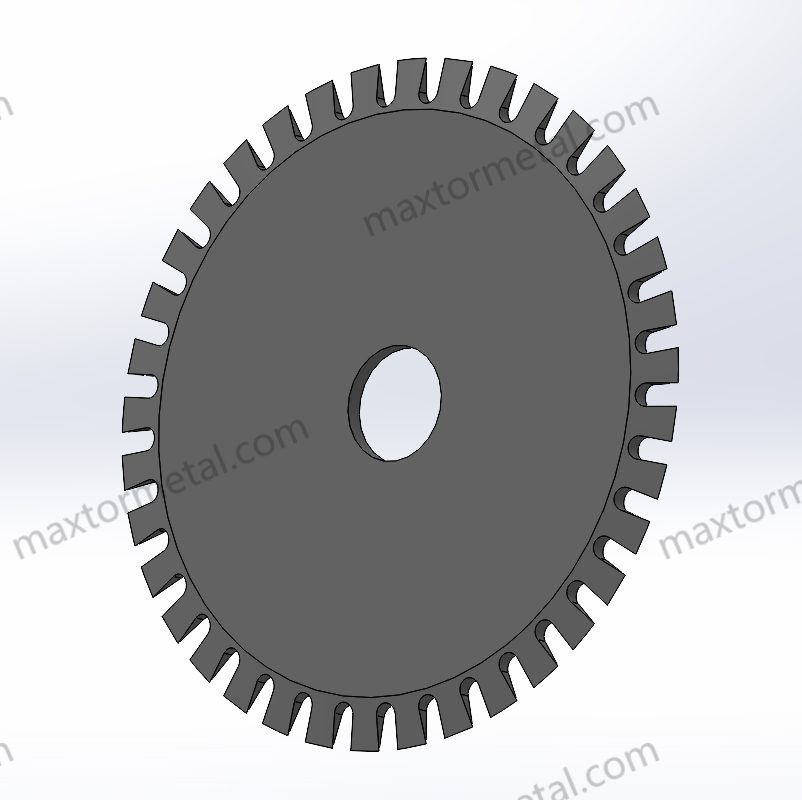
Pertunjukan
Pisau perforasi berputar
Rotary perforating knife systems make holes that look the same every time. They work well in fast factories. The round blade spins and stays sharp for a long time. Factories use these knives to cut thin things like paper and film. The spinning blade keeps cutting without stopping. This helps products stay strong and easy to tear.
Static perforating blades
Static perforating blades are good for making straight lines and neat holes. The blade does not move, but the material moves past it. This helps workers control the cuts and get the right size holes. Factories use static blades when they need perfect holes and lines. These blades may need to be changed more often in busy factories. They work best for small jobs or when workers need to help with cutting, like with special paper or packaging.
Speed and efficiency
Pisau perforasi berputar
Rotary perforating knife systems cut fast and do not stop. The spinning blade can cut lots of material quickly. This helps factories work faster and take fewer breaks. Rotary knives are made for machines that run by themselves. This means less stopping and more work done. Rotary knives can cut many things like paper, plastic, and film. They do not slow down much, so factories like to use them.
Static perforating blades
Static perforating blades cut slower than rotary knives. They are better for jobs that need careful cutting, not speed. These blades are good for short jobs or special tasks. If the material is thick or hard, workers may need to stop and fix the blades more often. This can make the work slower in busy places.
Maintenance and durability
Pisau perforasi berputar
Rotary perforating knife systems need regular care to work well. Workers check if the blade is lined up right. They sharpen the blades on a schedule. They look for chips or damage. Stainless steel and coated blades do not rust easily. Some rotary knives are easy to change and have finishes that stop rust. Rotary knives last longer and need fewer changes. This helps factories keep working without stopping much.
- Check alignment often to stop uneven wear.
- Sharpen blades on a schedule to keep them sharp.
- Look for chips to avoid damage.
- Stainless steel and coatings help stop rust.
- Quick-change blades save time.
- Easy-to-use designs help with setup and care.
Static perforating blades
Static perforating blades are simple and easy to change. Factories can put in new blades quickly. This is good for short jobs. But these blades can wear out faster in tough jobs.
Biaya
Pisau perforasi berputar
Rotary perforating knife systems cost more at first because they are complex and use strong metals. But over time, factories save money because they do not need to stop or change blades as much. These knives last longer and work faster, so they are a smart buy for busy places.
Static perforating blades
Static perforating blades cost less at the start. This makes them good for small jobs or places that want to save money. In busy factories, these blades may need to be changed more often. This can make the total cost go up. For short jobs or places where changing blades is okay, static blades are a good choice.
Application suitability
Pisau perforasi berputar
Rotary perforating knife systems are best for fast, nonstop work. They can cut many things like paper, plastic, film, and textiles. Factories that make packaging or textiles use these knives for strong and neat cuts.
| Fitur | Rotary Perforating Knives | Static Perforating Blades |
|---|---|---|
| Desain Pisau | Round, spins for fast, repeated cutting | Flat edge, cuts in one straight move |
| Suitable Material | Thin materials: thin metals, foil, strips, films, paper | Thick materials: metal sheets, rebar, thick plates |
| Cutting Speed & Usage | High-speed, continuous cutting in busy factories | Slower, suited for thick or small jobs |
| Keausan & Perawatan | Wears evenly, lasts longer with heat treatments | Wears unevenly, requires frequent sharpening |
| Aplikasi Industri | Packaging, film cutting, paper processing | Heavy-duty cutting of thick metals and rebar |
| Bahan dan Pelapis Pisau | Often tungsten carbide or HSS with coatings like DLC or TiN for durability | Typically tool steel or similar materials |
Static perforating blades
Static perforating blades are best for jobs that need perfect straight lines and holes. They work well in places where workers help with cutting or for special products. These blades are good for short jobs or when changing blades often is okay. Factories that need very neat cuts, like for special paper or packaging, use static blades.
Note: If you need a special blade for your job, visit the custom blades page.
Pros and cons
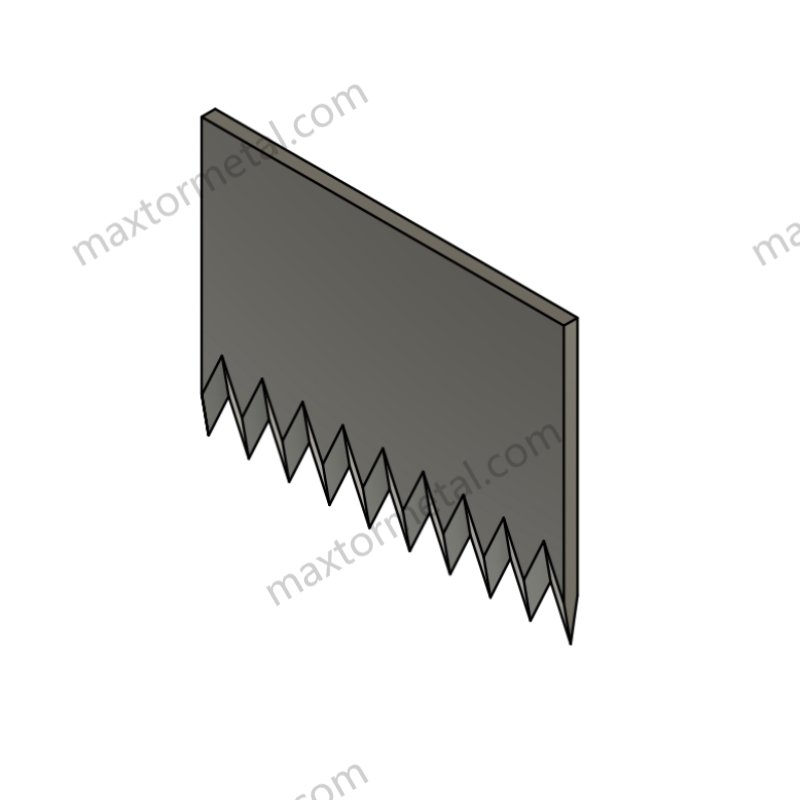
Pisau perforasi berputar
Rotary perforating knives have many good points for cutting in factories. These knives make the same cuts every time, even when working fast. The round blade spins and makes holes or slits that all look alike. Factories use rotary knives to cut things like paper, film, and textiles without stopping. The blade stays sharp for a long time, so workers do not need to stop often. Maxtor Metal makes rotary knives from strong metals, so they last longer and work well. Companies can ask for special rotary knives for their own jobs by going to the halaman bilah khusus.
But rotary perforating knives cost more at first. The design is tricky and uses better metals, so the price goes up. Workers need to check if the blade is lined up and sharpen it often. These knives are best for machines that work by themselves and need to go fast.
Tip: Rotary perforating knives are great for factories that want fast, nonstop cutting and do not want to change blades a lot.
Static perforating blades
Static perforating blades are best for jobs that need straight, neat cuts. These blades do not move, but the material goes past them. Factories use static blades for things like paper towels, packaging, and forms. The simple shape lets workers change blades quickly and fix them easily.
Static blades cost less at the start, so they are good for small jobs. But they can wear out faster if used a lot, so workers may need to change them more. Static blades are best for short jobs or when people cut things by hand.
Note: Static perforating blades are good for jobs that need neat cuts but do not need to go fast.
| Fitur | Pisau perforasi berputar | Static Perforating Blades |
|---|---|---|
| Kecepatan memotong | High, keeps going | Medium, works in groups or by hand |
| Pemotongan Presisi | Always the same | Very straight and neat |
| Pemeliharaan | Not often, on a schedule | Easy, but needs to be done more |
| Biaya Awal | More money | Less money |
| Kesesuaian Aplikasi | Big, fast jobs with machines | Small jobs, by hand or with some help |
| Kustomisasi | Yes (custom blades) | Yes (custom blades) |
Choosing the right tool
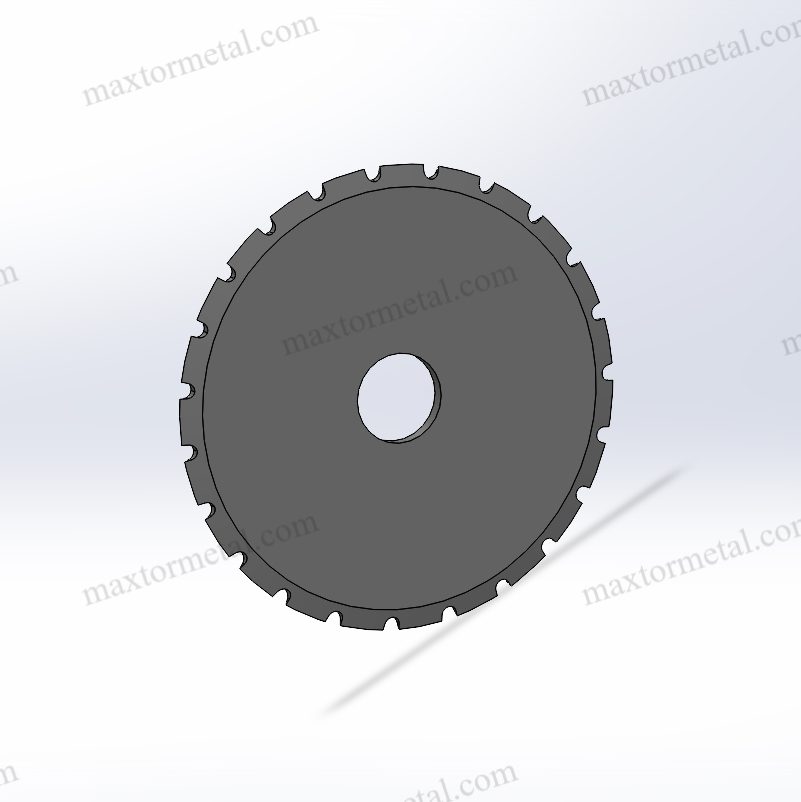
Decision factors
Picking the right perforating tool depends on a few things. Factories need to look at what material they are cutting. They also need to think about how fast they want to work. The end result is important too. Rotary perforating knives are best for fast jobs. These knives cut thin things like paper, film, and textiles. They make the same cuts every time and keep things strong during long jobs. Static perforating blades are better for jobs that need straight, neat lines. These blades are good when being exact is more important than being fast.
Factories should also think about how much they need to make. Rotary knives are great for busy places that cut all the time. They help keep things strong and stop too many breaks. Static blades are good for smaller jobs or when people cut by hand. These blades are easy to change and let workers control how easy it is to tear.
The table below shows which tool is good for each job:
| Faktor | Pisau perforasi berputar | Static Perforating Blades |
|---|---|---|
| Jenis Bahan | Thin, flexible materials | Thicker, rigid materials |
| Volume Produksi | High, continuous | Low to medium, batch-based |
| Kecepatan memotong | Fast, automated | Moderate, manual or semi-automated |
| Burst Strength | Maintains high burst strength | Baik untuk kekuatan ledakan yang terkendali |
| Kekuatan Sobek | Konsisten dalam jangka panjang | Tepat untuk lari jarak pendek |
| Pemeliharaan | Kurang sering, terjadwal | Penggantian cepat dan mudah |
Tips: Pabrik harus memilih alat yang sesuai dengan pekerjaannya. Pisau putar paling cocok untuk pekerjaan cepat dan tanpa henti. Pisau statis paling cocok untuk pekerjaan yang membutuhkan garis lurus sempurna.
Pisau perforasi putar cepat dan dapat memotong dengan cara yang sama setiap saat. Pisau ini paling cocok digunakan ketika pabrik perlu memproses banyak benda dengan cepat. Pisau perforasi statis cocok untuk membuat potongan yang lurus dan rapi. Pisau ini lebih cocok untuk pekerjaan kecil yang membutuhkan tampilan sempurna. Setiap alat cocok untuk pekerjaan pabrik yang berbeda. Sebelum memilih alat, sebaiknya pertimbangkan terlebih dahulu apa yang akan mereka potong dan seberapa banyak yang perlu mereka potong.
Tanya Jawab Umum
Bahan apa yang dapat dipotong oleh bilah perforasi?
Pisau perforasi dapat memotong berbagai macam benda. Pisau ini dapat digunakan pada kertas, plastik, film, tekstil, foil, label, pita perekat, dan kain non-woven. Pisau ini digunakan untuk kemasan, karpet, tas, karet, dan gulungan.
Bagaimana pisau perforasi putar meningkatkan kecepatan produksi?
Pisau perforasi putar berputar cepat dan memotong seiring pergerakan material. Hal ini membantu pabrik tetap beroperasi tanpa henti. Hal ini memungkinkan mereka memproduksi lebih banyak produk dalam waktu yang lebih singkat.
Bisakah Maxtor Metal menyesuaikan bilah perforasi untuk pekerjaan khusus?
Ya. Maxtor Metal dapat membuat bilah untuk pekerjaan khusus. Pelanggan dapat mengirimkan gambar atau sampel. Perusahaan akan membuat bilah yang sesuai dengan kebutuhan Anda.
Industri mana yang paling sering menggunakan bilah perforasi statis?
Pisau perforasi statis digunakan di banyak industri. Pisau ini umum digunakan dalam pengemasan, produk kertas, tekstil, perlengkapan medis, dan pengolahan makanan. Pisau ini menghasilkan garis lurus dan rapi untuk memudahkan proses sobekan dan pemisahan yang rapi.
Lihat Juga
Memahami Pisau Perforasi dan Aplikasi Praktisnya
Mengapa Pisau Perforasi Kemasan Digunakan Secara Luas di Industri Pengemasan


